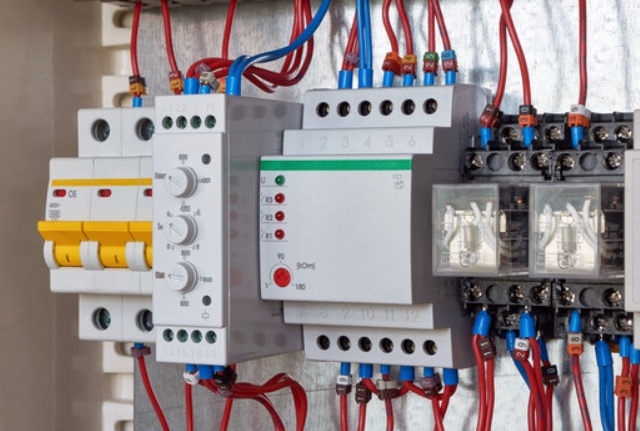In the realm of electrical engineering, contactors play a pivotal role in ensuring the smooth and efficient operation of various electrical systems. These electromechanical devices are designed to control the flow of electricity, providing a reliable means of switching and controlling power circuits. In this blog post, we will delve into the purpose and importance of contactors in electrical systems, exploring their functionality, applications, and benefits.
- Understanding Contactors:
Contactors are heavy-duty electrical switches that are specifically designed to handle high currents and voltages. They consist of a coil, contacts, and an enclosure. The coil, when energized, creates a magnetic field that attracts the contacts, closing the circuit and allowing the flow of electricity. Contactors are typically used in applications where frequent switching is required, such as motor control, lighting systems, and power distribution. - Ensuring Safety and Protection:
One of the primary purposes of contactors is to ensure the safety and protection of electrical systems. By providing a reliable means of switching and controlling power circuits, contactors help prevent electrical faults, such as short circuits and overloads, which can lead to equipment damage, fires, or even electrical hazards. Contactors are equipped with various protective features, including overload relays and thermal protection, to safeguard both the electrical system and the connected devices. - Enhancing Efficiency and Control:
Contactors also contribute to enhancing the efficiency and control of electrical systems. They enable the remote or automatic control of power circuits, allowing for precise and timely switching operations. This is particularly crucial in industrial applications, where the control of motors, pumps, and other heavy machinery is essential. Contactors enable smooth starting, stopping, and reversing of motors, reducing energy consumption, and minimizing wear and tear on equipment. - Extending Equipment Lifespan:
Another significant benefit of contactors is their ability to extend the lifespan of electrical equipment. By acting as an intermediary between the power supply and the load, contactors help reduce the stress and strain on electrical components. The controlled switching provided by contactors minimizes voltage spikes and current surges, which can damage sensitive equipment. Additionally, contactors allow for scheduled maintenance and troubleshooting, ensuring timely repairs and replacements, thus prolonging the lifespan of the entire system. - Applications of Contactors:
Contactors find extensive applications in various industries and sectors. They are commonly used in HVAC systems, elevators, lighting control, industrial machinery, and power distribution panels. In residential settings, contactors are employed in air conditioning units, water heaters, and electric vehicle charging stations. Their versatility and reliability make them an indispensable component in modern electrical systems.
Conclusion:
Contactors serve as the backbone of electrical systems, providing a reliable and efficient means of controlling power circuits. Their purpose extends beyond mere switching; they ensure safety, enhance efficiency, and extend the lifespan of electrical equipment. By understanding the significance of contactors, electrical engineers and professionals can design and implement robust and reliable systems that meet the demands of various industries. Embracing the advancements in contactor technology will undoubtedly lead to safer, more efficient, and sustainable electrical systems.

